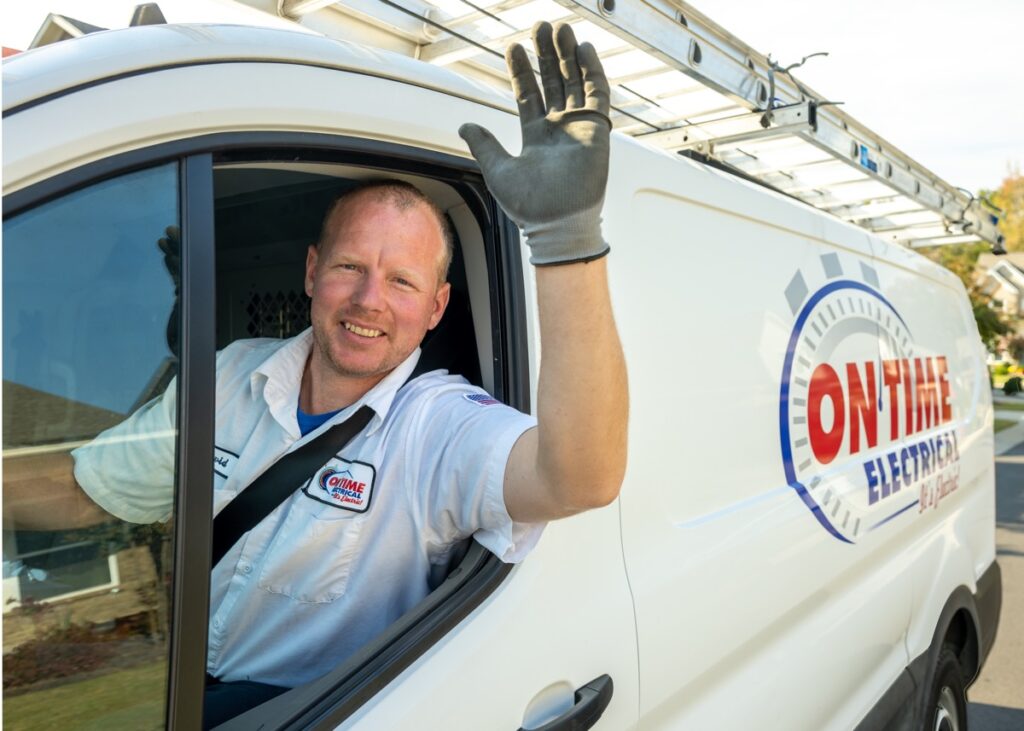Top Three Causes of Residential Power Outages
- Severe storms 47%
- Ice Storms 34%
- Utility System Failures 12%
- All Other Reasons 7%
Exercising Your Standby Generator:
A properly installed home generator will have an automatic run cycle programmed to start up and run for 20 to 30 minutes every one to two weeks. This is also called a ‘self-test’ and is essentially an exercise program for your generator. This process ensures that the generator’s starting system (batteries and charging) are working, that the fuel supply is good, and it is not overheating. Just like our cars, if the generator just sits for too long without ‘exercising’ or running, problems can develop like clogged fuel systems or deteriorating seals. This exercise is important to keep your generator in good shape and it can tell you if there are any problems with your system. But a professional inspection and tune up is even more important. A trained technician can assess the subtle effects of an aging system and guide you to help prevent problems that might arise down the road.
Preventive Maintenance:
The experts at On Time Electrical recommend that you have two preventive maintenance tune ups performed on your home generator each year. In our region the best times to have this done is late Spring and late Fall. Just like the maintenance for your car, there are some basics that the average homeowner can do on their own, but it is best to have a professional technician do the tune up maintenance on all the generator systems.
Home Standby Generators Are a System of Components:
Modern home standby generators involve complex electronic systems engineered to work efficiently and securely. Some of the components are simple however. It’s good to understand these systems, and to know what to look for when inspecting your own unit.
- Fuel: Gasoline, diesel, natural gas, or propane. Liquid fuel like gasoline and diesel that sits for a long time needs to be treated and replaced periodically to be kept fresh. Bad fuel is the most common reason for generator failure
- Fuel System: Filters, fuel lines, carburetors and injection systems need to be checked for clogs and function, and cleaned as needed. Note: Keeping your fuel fresh is the key to keeping your fuel system in good order
- Air Filters: Air filters need to be cleaned or replaced as needed. Exhausts need to be checked for blockage or corrosion
- Lubrication: Engine oil should be changed and kept fresh
- Starting System: The battery and onboard charger need to be checked for proper function and charging output
- Transfer Switch Mechanism: Often overlooked, but vital to the function of your generator. This system must be tested to ensure that the delivery of electricity gets transferred between the incoming electrical service and the generator. A good generator system will have a monitor that tests and reports any errors in the transfer switch mechanism. A professional generator tune-up includes a test of this system which is confirmed with diagnostic equipment
Homeowner Maintenance Tips:
- Read the manual that came with your system and note the specific requirements of your unit
- If your unit has a diagnostic monitor, check this monthly for any errors reported during the unit’s weekly self-check exercise run
- Check the oil level monthly. It could be an issue if the oil runs low. Since generators don’t run for long periods of time, a low oil level is likely due to a leak. You will want an experienced technician to track down and diagnose the cause of low oil level
- Check the coolant level monthly. The cooling system should not run low. If the level has dropped over time you will want to have an experienced technician investigate and diagnose the cause
- Check for signs of corrosion, damage, or loose connections on all the visible connections and the battery terminals
- Maintain the area around your generator. You want to make sure the air vents are clear and free of grass, weeds, or any other debris
- Make sure that no rodents have decided to make a home inside your generators enclosure. Some rodents like to chew on wire casing, and they like to make nests with dried grass, twigs, and other flammable material
- Schedule regular tune ups. It is recommended to have a professional technician inspect your home generator and give it a good tune up twice per year

If you have questions about home standby generators or the maintenance involved, a technician from On Time Electrical would be happy to talk with you. They are available to evaluate your home’s electrical needs and give a free estimate if you’re considering a home generator.
